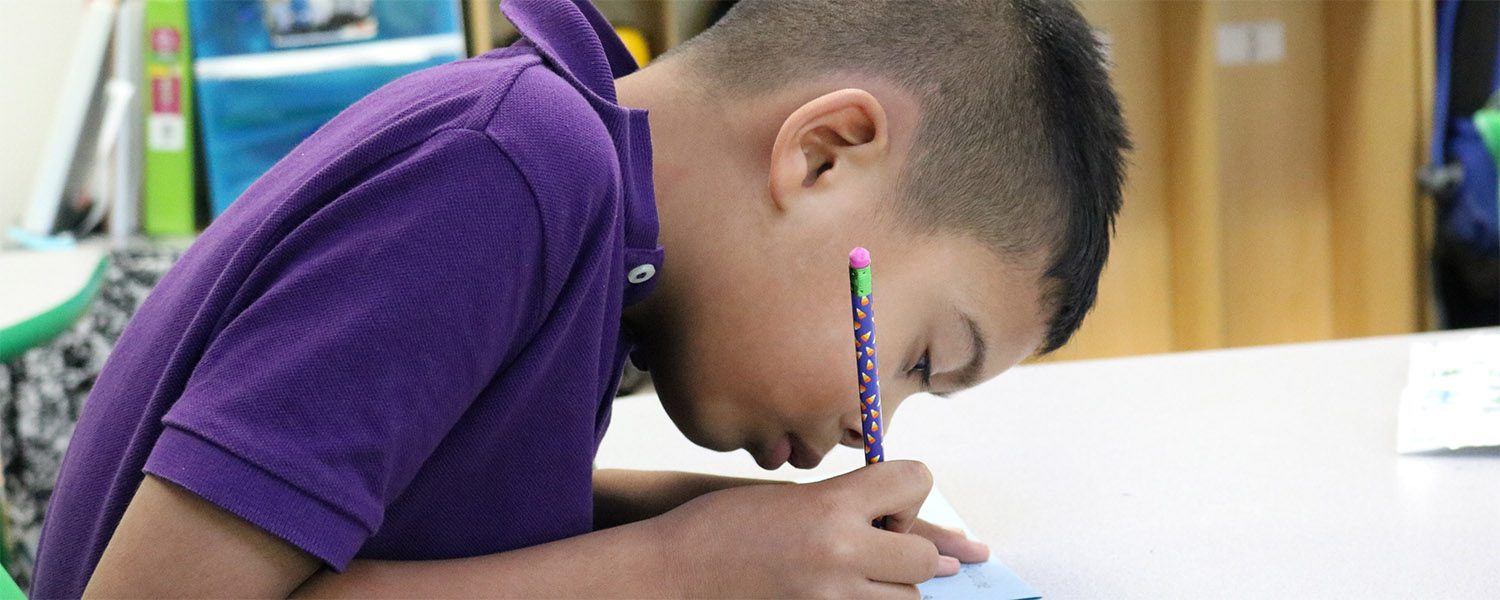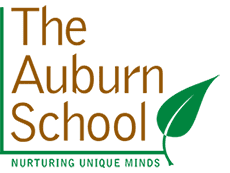Admissions
The Auburn School encourages applications from students of all backgrounds. Learn more about our admissions process.
Contact Us Today
Do you have questions about Auburn? Contact us today to speak with someone and learn more about Auburn.
Literacy & Language Arts

The Literacy and Language Arts Curriculum is an inquiry-based program focusing on the simultaneous development of critical and creative thinking, literacy, and both oral and written communication. Great Books forms the core of the literature program, with additional resources including novel studies, picture and chapter books. Social thinking is embedded and taught explicitly as students are shown how to participate in literature discussion.
Reading Comprehension targets both literal and inferential comprehension, as well as figurative language understanding and use. Reading comprehension and writing are extended to multiple genres – such as expository and narrative text – as reading and writing instruction occurs across all subjects. Word analysis and fluency instruction draw primarily from Words their Way and Read Naturally.
Written language, vocabulary, and spelling are taught through the objectives of Great Books, drawing upon other resources, such as:
- Framing Your Thoughts: Applied Writing Sentence Structure (Project Read)
- Heineman Units of Study: Primary Writing; and, Teaching Writing Grades 3-5
- Words Their Way
- Novel and Poetry Units
- Step Up to Writing (Expository Writing)
The Handwriting Curriculum follows the sequence of Handwriting Without Tears. Award winning typing programs teach keyboarding in a fun and motivating way.
Fiction reading and narrative writing are made explicit with the visual components of the Story Grammar Marker. The Story Grammar Marker supports the understanding of key social events in stories and gives students language for explaining the elements of the story (setting, plot, events, etc). More importantly, it provides the opportunity for students to engage in the thoughts, feelings and intentions of characters and to better understand the relationships between characters and events in a story.
Instruction
Social learning and thinking are embedded in both the academic curriculum and instruction throughout the day. Key social skills are broken down into more basic components. Students learn how to cooperate and work successfully as group members in a variety of projects and activities. Role-playing, drama, art, and other forms of creative expression are used to facilitate student learning and to practice successful social skills strategies.
Integration
We believe that one of the best ways to develop social growth is by coaching students through the “teachable moments” that occur naturally each day. Whether in the classroom, during group activities, at lunch, or on the playground, all of our staff are continually working with students to practice skills they are learning. Successful experiences are reinforced, and we help students learn how to “repair” an unsuccessful experience by trying a different approach to produce the desired outcome. Parents and family members are also included as we extend the learning into the home environment.
Because our students often struggle to apply skills they acquire in new environments, we provide them with regular opportunities to practice their social skills in the community. We take full advantage of the wealth of community and cultural resources within walking distance, and around the greater DC area. We want our students to develop fluency in their social interactions as they eat out, go to the park, take a field trip, or enjoy extracurricular activities with families and friends. We teach our students how to navigate the unstated rules of society that can be difficult for them to understand.
Generalization
We strive to ensure that the skills that students are learning in the classroom transfer to their day to day lives. Through frequent and consistent communication, teachers and parents are able to cooperate on addressing targeted goals specific to each student. Using The Auburn Compass, we establish a means to monitor and assess whether students are successful in this transfer of knowledge in their day to day lives.
Growth
Our staff are trained to assess students to determine their unique social strengths and challenges so that we can implement the most appropriate and effective strategies. We employ a number of methods to measure social skill acquisition and mastery, such as videotaped self-modeling, portfolios, anecdotal records, checklists and self-recording. Ongoing and accurate assessment is crucial to student growth, and allows us to continually refine and improve upon our program. We actively communicate with parents regarding student progress in social growth areas.
Assessment
We have developed a social thinking and learning assessment tool that we use to measure social growth. The assessment measures communication, cooperation, assertion, responsibility, empathy, engagement and self-control as well as competing problem behaviors. It incorporates data collected from students, parents and teachers supporting the format of the Auburn Compass.
Admissions
The Auburn School encourages applications from students of all backgrounds. A diverse community provides the richest possible learning experience for all of our students.

